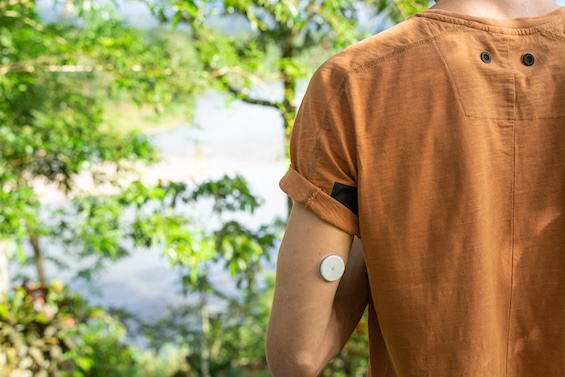I was only a child when my life took a sharp turn. At around five or six years old, I started noticing odd changes in my body that I didn’t understand. The day I landed in the hospital was the day the word “diabetes” entered my life, even though I didn’t know what it meant.
I overheard my father telling my mother about my diagnosis, but all I could follow was that a few injections would make me feel better. I didn’t realize these injections would become a part of my daily routine for the rest of my life. The simplicity with which my condition was explained to me was a shield, protecting me from the gravity of what living with type 1 diabetes (T1D) would truly entail.
As I grew older, the impact of T1D on my daily life became more apparent. Living with this condition is a rollercoaster — some days are good, others are a battle. In the early years, I grappled with feelings of negativity and depression. The constant question of “Why me?” weighed heavily on my mind, and the sense of guilt associated with my condition isolated me from others.
I felt alienated, like an outsider in my own life. But I was determined not to let this condition define me. Over time, I took mental control of my situation, transforming every roadblock into a new direction or a message from life.
Living with T1D has made me resilient, and I take pride in the strength it has forged within me over the past three decades. It has also deepened my understanding of the importance of empathy. I’ve learned to give people the benefit of the doubt because I know firsthand how limiting assumptions can be.
This empathetic approach has been welcomed by my community and enriched my interactions with others. However, I recognize that awareness and understanding of chronic conditions like T1D are still lacking in many cultural communities. People often disregard issues that don’t affect them personally, and misconceptions about T1D are rampant.
The most common one I encounter is the belief that my diabetes was caused by overeating sugar. People assume that my insulin pump is a “pager” or some high-tech gadget, or they think that managing T1D is easy and that I use the condition to garner attention. These misconceptions can be incredibly harmful, especially to young people with diabetes who are already struggling with their confidence and self-worth.
Stigma can lead to feeling isolated, depressed or believing you are fundamentally flawed.
Family, friends and community support are crucial in managing diabetes. It forms the bedrock of a patient’s ability to cope with the condition. A supportive environment can make the difference between despair and hope, between giving up and pushing forward.
My advice to families and friends is simple: Be open, seek knowledge and remain positive.
Understand that no one is at fault and be the pillar of strength your loved one needs.
Healthcare providers have an essential role for people living with diabetes. My own experience has been a mixed bag. Providers who took the time to engage in meaningful conversations and treated me as a person rather than a case number guided me without imposing. It allowed me to make informed decisions about my treatment.
On the flip side, I’ve had healthcare professionals treat me as a “dummy” and rush me through appointments without listening or considering my lived experience. That those kinds of interactions continue today is disappointing. In the long run, they can also be harmful to a patient’s overall health and well-being.
Looking forward, I would encourage several changes in healthcare settings. We need continuous and integrated care, patient education, personalized treatment plans, quality patient-physician interaction and enhanced mental health support.
Greater access to telehealth services and diabetes technology, like continuous glucose monitors, would also make a significant difference.
Most importantly, there needs to be a shift toward empathy and understanding in patient care – a move away from treating patients as mere tools for promotional purposes and toward engaging them meaningfully in their healthcare journey.
In sharing my story, I want other people living with diabetes to feel less alone, be more understood, and better equipped to face their challenges –happily and strongly.
By Najeeb Ashraf
Najeeb Ashraf is CEO, SciVoc Consulting Inc. and is a passionate awareness advocate for Diabetes Canada, dedicated to empowering individuals with diabetes through education and peer support. Being a T1D, Najeeb strives to inspire and guide the community toward making healthier and informed choices.


